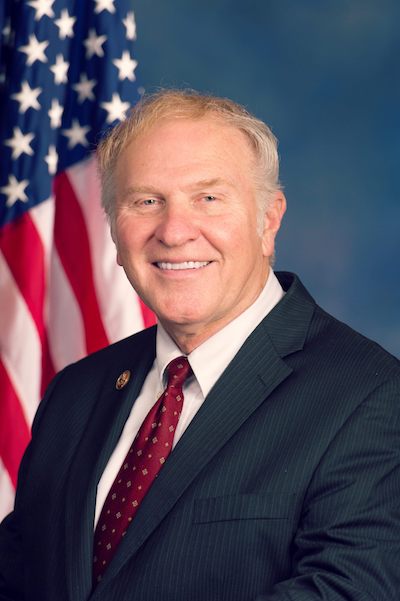Congressman Steve Chabot (R-OH) and Congressman Henry Cuellar (D-TX) are co-sponsoring H.R. 6695, the Trademark Licensing Protection Act of 2018, which has been referred to the House Committee on the Judiciary. The bill is designed to clarify the law around trademark licensing for franchises in a way that reduces the liability of franchisees under current U.S. labor law.
In its initial publicly released draft, the proposed bill is very short, reaching barely more than two pages in length and including only one section that would change existing trademark law if enacted. The act would amend the Lanham Act, the law originally passed in 1946 to codify U.S. trademark law, by adding new language to Section 5 of the act under the title Licensing of Marks for Use by Related Companies. This section would clarify that the licensing of a trademark for use by a related company, and any exercise of control to protect the quality of goods or services associated with the trademark, doesn’t establish an employment or principal-agent relationship between the trademark’s owner and the related company. The term “employment or principal-agent relationship” is intended by the bill to cover various types of business relationships including joint employer, single employer, alter ego or successorship relationships.
Within a week of the bill being introduced in the House, it was lauded by the International Franchise Association (IFA), an industry group representing franchising interests from across the globe. In a press release issued on September 4th, IFA’s Senior Vice President of Government Relations & Public Affairs Matt Haller praised the law for cleaning up liabilities created by competing laws that require brands to preserve federally-registered trademarks through brand control but then penalize brand owners under joint employer rules for exercising those controls:
“Franchise businesses are in a Catch-22. They are at once required to maintain standards and possibly liable for efforts to maintain them. This bill can clarify these competing standards to allow for franchise businesses to grow, train workers, and strengthen local economies. Franchisees and franchisors continue to face significant legal and compliance costs, resulting in a chilling effect on economic growth and support for existing franchisees since the joint employer uncertainty began.”
Since being introduced into the House, H.R. 6695 has picked up an additional two co-sponsors from the Republican side of the aisle: Conressmen Bill Flores (R-TX) and Brad Wenstrup (R-OH).
The joint employer status issue currently affecting franchise owners largely stems back to the National Labor Relations Board’s (NLRB) 2015 decision in Browning-Ferris Industries of California, which expanded the kind of business activities which could be determined to create joint employer status. In Browning-Ferris, the NLRB determined that Browning-Ferris, a waste management company, was a joint employer with LeadPoint, a temporary employment agency supplying employees to Browning-Ferris for the cleaning and sorting of recycled products. The aspects of the business relationship that caused the NLRB to determine joint employer status included both indirect and direct control possessed by Browning-Ferris over the employment terms and conditions of employees provided by LeadPoint. Commentators have pointed out that this NLRB decision has created a great deal of uncertainty for any franchise business which licenses trademarks from brand owners because federal trademark law requires brand owners to control the use of their marks and such control could lead to increased liability under the Browning-Ferris (BFI) standard simply for complying with the terms of the Lanham Act.
In mid-September, IFA President and CEO Robert Cresanti wrote an opinion piece published by The Hill to further the organization’s support of the Trademark Licensing Protection Act, arguing that consumers are already aware that brand control issues like product quality and employee uniforms don’t constitute joint employment but are rather controls to protect trademarks. Cresanti cited survey results from the technology and media company Morning Consult to note that more than 60 percent of voters believe that franchisors shouldn’t be punished for enforcing the proper use of their trademarks, suggesting that the majority of American voters support the bill’s intent.
Image Source: Public Domain.

![[IPWatchdog Logo]](https://ipwatchdog.com/wp-content/themes/IPWatchdog%20-%202023/assets/images/temp/logo-small@2x.png)


![[Advertisement]](https://ipwatchdog.com/wp-content/uploads/2024/04/Patent-Litigation-Masters-2024-sidebar-early-bird-ends-Apr-21-last-chance-700x500-1.jpg)

![[Advertisement]](https://ipwatchdog.com/wp-content/uploads/2021/12/WEBINAR-336-x-280-px.png)
![[Advertisement]](https://ipwatchdog.com/wp-content/uploads/2021/12/2021-Patent-Practice-on-Demand-recorded-Feb-2021-336-x-280.jpg)
![[Advertisement]](https://ipwatchdog.com/wp-content/uploads/2021/12/Ad-4-The-Invent-Patent-System™.png)







Join the Discussion
No comments yet.